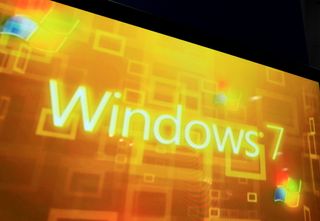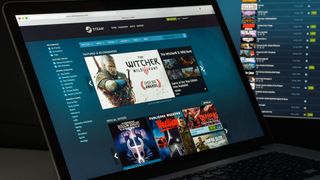Valve Prepares to Kill Steam Gaming on Windows 7 and 8
Windows update holdouts have until January 1, 2024 to comply.

Steam, the world’s most popular PC gaming client, community, and store, will shut its doors to Windows 7, 8, and 8.1 users next year. The cut-off date for Windows upgrade holdouts is January 1, 2024. To be clear, from January 2024, Windows 10 will be the oldest Windows OS that is compatible with the Steam Client.
In a short blog post on Windows 7 and 8 support today, Valve states that users will have to upgrade to a newer version of Windows “in order to continue running Steam and any games or other products purchased through Steam.”
Some reasoning behind the support policy is revealed. It turns out that the newest Steam features “rely on an embedded version of Google Chrome” that offers limited functionality on older Windows versions. It is thus at least partly due to this software embed that Steam must enact a Windows 10 or newer policy. However, with the transition now set in stone, future versions of Steam are also set to rely on feature and security updates that are only present / destined for Windows 10 or above.

While it is somewhat sad that Valve is dropping support for the older Windows OSes, we must remember that Windows 10 was launched in July 2015. At nearly eight years old, with widespread use in schools, homes, and businesses, it is long past any teething troubles. It is admittedly more of a heavyweight than Windows 7 and 8, but there’s a Tiny10 lightweight version of it (and Tiny11 version of Windows 11) for those worried about the impact on their hardware resources.
In the latest Steam Hardware Survey, Windows accounts for 96.4% of gamers. Windows 10 and 11 are by far the most popular versions, with 62.3% and 32.1% of users, respectively. Meanwhile, earlier versions of Windows (7 and 8.1) add up to just 1.9% of all users — and continue to slide in the popularity stakes. There are even 0.09% of surveyed Steam PCs that are still running the 32-bit version of Windows 7.

Those with old machines that users resolutely want to remain Steam connected may be tempted to switch to Linux, or even HoloISO — a PC version of the portable Steam Deck’s SteamOS. However, please remember that despite large strides in game compatibility made since the arrival of the Steam Deck, there are still some Linux and PC Steam games wrinkles.
Regardless, Valve is set to move on from the Windows 7/8 era. Windows 7 originally released in 2009 and was well received (especially compared to its Vista predecessor). Windows 8 came out in 2012, and many disliked the new Start Screen along with other aspects. Windows 8.1 followed a year later, with an attempt to right the wrongs of Windows 8.
Microsoft officially discontinued support for Windows 8 in January 2016, while Windows 7 reached end of life in January 2020. Windows 8.1 joined them at the start of this year. As such, it's understandable that Valve would want users to upgrade to Windows versions that are still supported by Microsoft.
Stay On the Cutting Edge: Get the Tom's Hardware Newsletter
Get Tom's Hardware's best news and in-depth reviews, straight to your inbox.

Mark Tyson is a news editor at Tom's Hardware. He enjoys covering the full breadth of PC tech; from business and semiconductor design to products approaching the edge of reason.
-
RichardtST Well, that sucks. My old (2012!) development PC with Win7 is what drives my VR headset in the living room. Does this mean I won't be able to run SteamVR on it anymore? Do I really need to go find a whole new freaking PC just to run VR now? That doesn't work for me. I do not like that at all. Steam runs on Linux, but most of the games don't, so that isn't even an option. If they want to freeze updates that would be ok, but it better still run.Reply -
ezst036 With Microsoft not supporting 7 and 8 much longer, why should Valve? The browsers don't support Win7/8 either, AFAIK. Google Chrome at least.Reply
Valve should mainly just support Win10, 11, and of course Linux. -
mo_osk ReplyRichardtST said:Well, that sucks. My old (2012!) development PC with Win7 is what drives my VR headset in the living room. Does this mean I won't be able to run SteamVR on it anymore? Do I really need to go find a whole new freaking PC just to run VR now? That doesn't work for me. I do not like that at all. Steam runs on Linux, but most of the games don't, so that isn't even an option. If they want to freeze updates that would be ok, but it better still run.
You could always update to Windows 10. Even updating to 11 would probably be possible without much of an hassle. -
EJ42 Reply
Yeah...Windows 11 isn't going to run on that.mo_osk said:You could always update to Windows 10. Even updating to 11 would probably be possible without much of an hassle. -
Alvar "Miles" Udell Don't forget the biggest reasons to stay on 7: ease of piracy, and reasons of privacy. Windows 7 may have a ~5% market share worldwide, but it's over 13% in Russia and 30% in China (figures by Stat Counter), places where government is far more invasive than in the USA and EU, the latter of which has a special edition of Windows 10 and 11. It will be interesting to see how the steam hardware survey changes in January after removing Windows 7 support, and to see if any hackarounds are developed.Reply -
Yeah you see when operating systems have been long retired, software developers Don’t want to maintain that old stuff forever because it’s a money loss situation. They don’t really care how much you don’t like it so there’s no use complainingReply
There’s no company out there in the universe, that whatever support old unsupported software forever -
truerock ReplyRichardtST said:Well, that sucks. My old (2012!) development PC with Win7 is what drives my VR headset in the living room. Does this mean I won't be able to run SteamVR on it anymore? Do I really need to go find a whole new freaking PC just to run VR now? That doesn't work for me. I do not like that at all. Steam runs on Linux, but most of the games don't, so that isn't even an option. If they want to freeze updates that would be ok, but it better still run.
I built my PC in 2012. I upgraded it for free to Windows 10 in 2016.
My PC is still using its original CPU, motherboard, nVidia GTX graphics card, etc.
I would upgrade to a newer PC if the performance improvement would be significant... I'm just not sure it would be that noticeable. I guess when nVidia delivers graphics cards that support DisplayPort2 with USB-C ports I'll upgrade. I've been running 1080p at 60Hz for over 10 years. I think I want to run 4k at 120Hz with 10bit color to make an upgrade worthwhile. -
RichardtST ReplyMandark said:Yeah you see when operating systems have been long retired, software developers Don’t want to maintain that old stuff forever because it’s a money loss situation. They don’t really care how much you don’t like it so there’s no use complaining
There’s no company out there in the universe, that whatever support old unsupported software forever
There's a difference between stopping support/updates vs just plain doesn't run. If they just want to stop updates I'm fine with that although their reasoning is dumb... "Oh gee, google chrome has a built-in to Windows 11 that we want to use". Yeah.... no. That's lame. This is exactly the reason I stick to the KISS Principle and refuse to be dependent on outside libraries. If we start letting software developers determine when we have to buy new hardware, then we'll all be buying all new hardware every 6 months. -
Math Geek fortunately, i'm pretty much on linux as my daily driver so windows can bite me.Reply
linux makes it fairly easy to pass a full gpu through to a vm (well much easier than within windows anyway) so firing up a windows vm to play a game if i want to is not that big of a deal. keeps a lot of the privacy concerns down as well when all it's used for is to launch a game. everything else is done in linux.
if you're not willing/able to go that route and still want to use steam, then you got no choice. it sucks for sure, but the choice is made for you if you have to stick with windows and wish to use steam. -
BX4096 Windows 7 was released in 2009, and Windows 8 was a piece of crap. It's time to let both go.Reply
Any power user switching to and properly setting up Windows 10 today won't be missing anything worth mentioning but will find some new features that are undeniably worth it. Windows 11 is a bit trickier, but speaking personally, I was managed to set it up to behave pretty much identical to my earlier Windows 10 setup, and I am very particular about how I smoothly want my OS to run.
Most Popular




